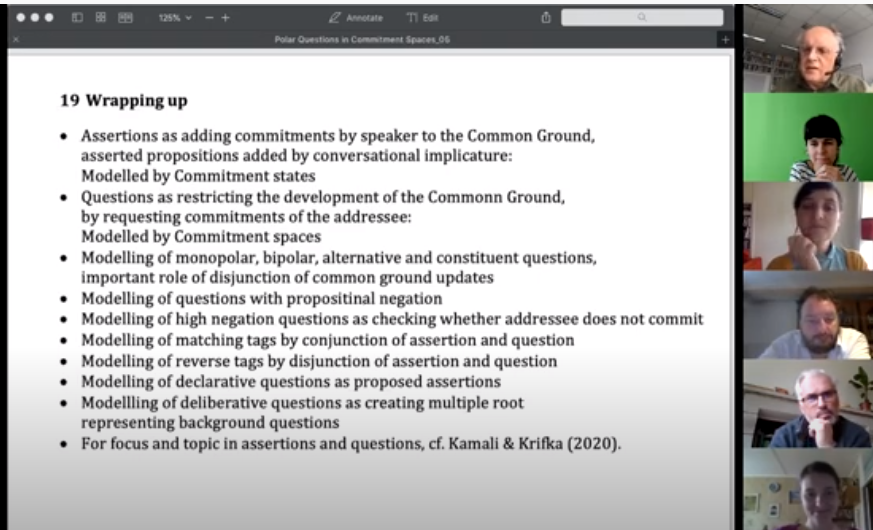Manfred Krifka's online lecture
On October 6, Manfred Krifka (Leibniz-Zentrum Allgemeine Sprachwissenschaft, Humboldt-Universit├żt Berlin) gave an online-lecture "Layers of assertive clauses: The syntactic realization and semantic interpretation of epistemics, evidentials, and commitment markers".┬Ā

Abstract
I propose a refined syntactic and semantic analysis of assertive clauses that comprises their truth-conditional aspects and their speech act potential in communication. What is commonly called “illocutionary force” is differentiated into three structurally and functionally distinct layers: a judgement phrase, representing subjective epistemic attitudes and evidential modifications; a commitment phrase, representing the social commitment related to assertions; and an act phrase, representing the relation to the common ground of the conversation. I provide several pieces of evidence for this structure: from the interpretation and syntactic position of various classes of epistemic, evidential, affirmative and speech act-related operators, from clausal complements embedded by different types of predicates, from embedded root clauses, and from anaphora referring to different clausal projections. The object language is German, with particular reference to verb final and verb second structure. However, I will also show how — if this structure is assumed to be universal — it explains a typological finding concerning shifted indexicals.
Krifka, M. (2015). Bias in commitment space semantics: Declarative questions, negated quetions, and question tags. In Semantics and Linguistic Theory (Vol. 25, pp. 328-345).
Krifka, M. (to appear).Layers of Assertive Clauses: Propositions, Judgements, Commitments, Acts
Kamali, B. and Krifka, M. (to appear). Focus and Contrastive Topic in Questions and Answers, with particular reference to Turkish
